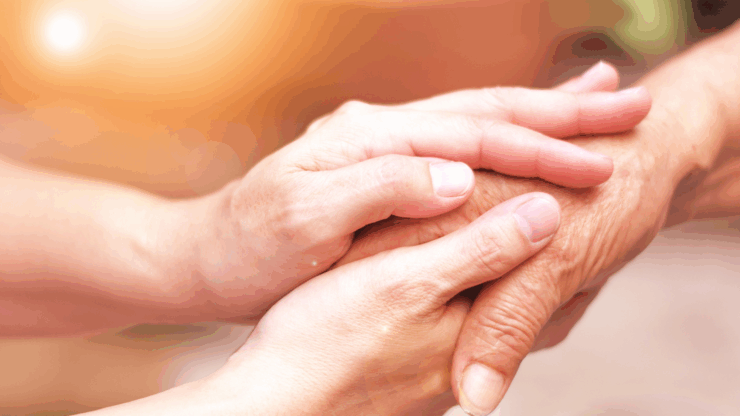
What to Expect as a Hospice Caregiver
Key Takeaways
- Hospice caregivers provide comfort and support during a loved one’s final stage of life.
- Care may involve managing symptoms, offering companionship, and coordinating with professionals.
- Emotional stress and grief are common and valid experiences.
- Being present and patient matters more than doing everything perfectly.
- LifeWorx caregivers provide compassionate support to families during hospice care.
Hospice care is a specific kind of care designed to support an individual with a terminal illness and their family, friends, and caregivers. People with both cancer and non-cancer illnesses can be eligible to receive hospice care. Hospice seeks to administer and maintain care pain-free, giving individuals time and comfort to spend with their loved ones. You may recall that we recently published an article called Understanding the Four Stages of Hospice Care: A Guide for Families. Today, we will be sharing what the primary role of a hospice caregiver is, what can this type of caregiver expect when they are providing care to a patient, and tips on maintaining your health and well-being.
The Role of a Hospice Caregiver
Hospice caregivers are the ones helping both inpatients and outpatient hospice patients with their daily activities and care. A caregiver’s primary role is to provide support to the individual in hospice or palliative care as well as their loved ones. Some duties of a hospice aide include:
- Personal care of the patient – Hospice caregivers often help their patients with personal hygiene, staying clean and comfortable, helping them to brush their teeth, use the bathroom, bathe, and shower, get dressed, get in and out of bed, and providing them clean clothes and bed linens.
- Basic Medical Care – Caregivers also need to have a basic understanding of medical terms and prescription medications. They will be providing basic medical care to their patient, as well as helping to communicate to the family and the patient what treatments are being given to them. Basic medical care also includes taking their temperature, changing wound dressings, applying ice or heat, and taking blood pressure readings.
- Medications – Ensuring prescriptions are filled and that correct dosages are given at the proper times. Hospice care means the focus of care will be on the comfort and pain relief of the patient. Most of the care plan should be dedicated to the alleviation of symptoms rather than aggressively treating the cause. It’s best to keep a medication log, provided to you in a hospice binder.
- Communication – Contact the Hospice Care team for any concerns, or questions related to seeking treatment outside of the scope of hospice services or in the event of an emergency.
- Improving the Quality of Life – By performing numerous duties on their behalf, caregivers can improve the quality of life for their patients receiving hospice care. The purpose of hospice is to help patients live as well as possible for as long as possible.
The Differences Between a Hospice Caregiver and a Hospice Nurse
The difference between a hospice nurse and a hospice caregiver is that a hospice nurse requires much more schooling and experience, while a hospice caregiver is simply someone who has caring qualities that help them take care of others. A hospice caregiver does not need any medical training other than a basic understanding of general medical terms and common medications.
There are specific steps and requirements to become a hospice nurse, and it’s important to understand them before pursuing this career. Hospice nurses must be skilled in many areas such as communication, compassion, emotional resilience, and comfort with death.
A Few Ways You Can Take Care of Yourself
It’s important to maintain your health and well-being when caregiving for someone else. Here are some self-care tips:
- Don’t neglect your health – Most people feel more tired and less energetic when they are caring for a sick loved one. For this reason, it’s important to get plenty of sleep. Additionally, make sure you are eating healthy foods and taking time to appreciate some kind of physical activity on a regular basis.
- Take a break – As a caregiver, it’s important to take time for yourself to nourish your mind, body, and soul. Whether it’s a relaxing massage or simply enjoying a cup of coffee and conversation with a dear friend, find time to take a break.
- Give yourself time – While a loved one is in hospice care; you may have fallen into a particular routine, and you may feel like you have time to grieve your loss as it’s happening. It’s okay to give yourself a little space and to take more breaks.
Whether you’re a patient, family member, or caregiver, having correct information about hospice services can help you make the best decisions about whether hospice care is appropriate or not. It is never too early to know your options and learn more about hospice care.
Find your peace-of-mind.
Explore LifeWorx’ in-home elder care services.

















